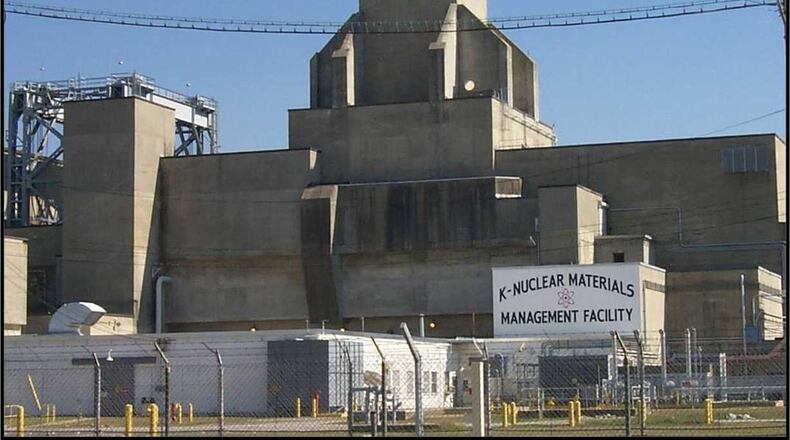UPDATED: To ensure that a nuclear facility would be safe, the U.S. government paid a premium to Energy & Process Corp. of Tucker to supply top-quality rebar. The company certified that it had made all quality checks. But a third of the steel rebar the company supplied for the nuclear waste plant - about 10,000 tons - was defective, the government said in a lawsuit accusing the company of fraud.
The defective material potentially jeopardized the structural integrity of the plant, the lawsuit alleged. Some of the defective rebar was actually installed and embedded in concrete in critical locations of the plant, according to the lawsuit. As a result, the project incurred substantial delays and millions of dollars in extra costs.
This week, the company agreed to settle the lawsuit by paying $4.6 million. That's in addition to the costs the company incurred in replacing the defective rebar.
In a prepared statement, the company denied any wrongdoing. "E&P settled this matter to put an end to an investigation that began back in January 2008," said the statement from Denise Vaughn, senior director of communications. "This has been an ongoing distraction and expense to the company for almost 10 years...To avoid future distraction and the cost of lengthy litigation, E&P elected to settle the matter and return focus to its business and serving E&P's valued customers."
A whistleblower, Georgia resident Deborah Cook, had filed the original lawsuit in 2013 against Energy & Process Corp., accusing the company of knowingly supplying defective material for the Savannah River Site, a Department of Energy facility in South Carolina, about 25 miles from Augusta, Georgia. The government later joined the lawsuit.
A plant being constructed at the site is supposed to convert weapons-grade plutonium into nuclear reactor fuel, carrying out a landmark deal between the U.S. and Russia aimed at nuclear arms reduction.
But the Mixed Oxide Fuel Fabrication Facility has been plagued by huge cost overruns, busted deadlines and construction quality problems, according to news reports.
Safety concerns also have mounted.
Former South Carolina governor Nikki Haley has been among critics, fearing the state is becoming a permanent nuclear dumping site.
In March, a judge ordered the federal government to remove a ton of plutonium from the site. South Carolina had sued the Department of Energy and other federal agencies, saying that the facility was supposed to begin disposing of plutonium in 2014, but because that never happened, the federal government was obliged to remove a metric ton of plutonium a year starting in 2016, a South Carolina newspaper reported.
About the Author
The Latest
Featured



